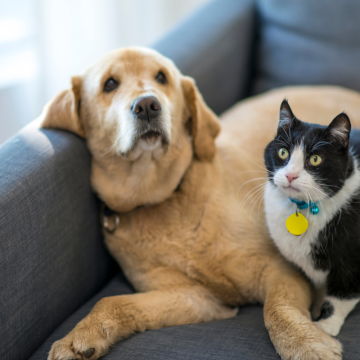Finding out that a friend has cancer is devastating. Even when it’s caught early or is a type of cancer that is highly treatable, it can feel like your hands are completely tied. When the cancer is advanced or of a type that is particularly difficult to treat, things are even harder.
How can you help a friend who is so in need at this vulnerable time? Here’s some helpful advice.
Making the First Call
That first call is usually the hardest. In fact, it can be so hard that many people avoid it altogether. This reasoning can actually be a coping mechanism on your part, however.
Understandably, it is difficult to pick up the phone and dial your friend’s number after you hear through the grapevine or a text message that they’ve been diagnosed with cancer. What are you supposed to say to them? What if they don’t want to talk to you? What if you say the wrong thing and upset them even more?
These are all the ideas that you need to get out of your mind. Making the first call is not about what you say or how you say it. It’s not about making the person on the other end feel all better. That won’t happen. They’re going to feel bad about their situation; that’s a given.
Instead, remember that making that first call to your friend is a gesture that shows you care. The goal is to tell the other person that you’re thinking about them, and you’re open to talking to them if they want to talk. You’re also saying that you’re ready to help.
What you say isn’t all that important for this reason. Still, there are some guidelines that you can follow to help you navigate the conversation.
First, don’t beat around the bush. Don’t call and then start asking them about other aspects of their lives or telling them about something you’re experiencing. Get right to the point: I heard you were diagnosed with cancer, and I want to know how you’re doing.
Second, don’t tell them that everything’s going to be okay. This is a common mistake that many people make when they’re discussing health issues with other people. You actually don’t know that everything is going to be okay. You hope it will be! But you don’t want to give someone false hope.
At the same time, it’s important to stay positive. Doesn’t sound easy, right?
To strike a good balance, simply stick to saying things that are empirically true. For example, you might say something like, “This really sucks” or “I hate that this is happening” or “I want you to tell me what you need.”
Helping Without Needing to Be Asked
Most people who are going through a difficult time have trouble asking for help. First of all, they don’t know exactly what it is they need. Secondly, even if they do know, they probably feel bad asking others to do things for them. Often, it’s things that aren’t very “fun” to do, like folding laundry, driving, cleaning, or making meals.
If you’re a good friend, however, doing these things will not be hard at all, and you’ll actually want to do them! The point is that you might not be asked, so you’ll need to be ready to do some helpful things without being asked.
Naturally, you should never do something extremely invasive to the person’s privacy or personal space. Don’t show up uninvited when they’re at the hospital. Don’t invite yourself to come over and stay to chat.
On the other hand, it is acceptable to not ask your friend if they want you to make frozen meals for them to keep in their freezer and to simply do it instead. If you’re at their house (invited) and you see a dish full of dirty dishes, don’t hesitate to simply get up and start washing them.
Gifts are always welcome as well. That’s because if they don’t want them, they simply don’t have to use them. Good gifts for someone going through cancer include scented candles, peppermints and peppermint-flavored candies and foods to prevent nausea during chemo, books and magazines, flowers, and essential oils. Especially consider CBD-infused essential oils as these can be particularly helpful with chemo-related symptoms and may even help support cancer remission itself. Just be sure your friend checks with their doctor, and always choose to shop at a dependable dispensary Tucson residents trust.
Finally, remember that there really are no hard and fast rules when it comes to supporting and helping a friend who was recently diagnosed with cancer. We can only recommend some useful advice that may lead you in the right direction if you are entirely unsure how to act — especially right away.
In truth, the best way to support a friend in this situation is to let them lead the way. Listen, respond with compassion, and be a strong support that they can rely on. Simply doing these three things will make an immense difference to your friend’s outlook and experience.





Leave a Reply